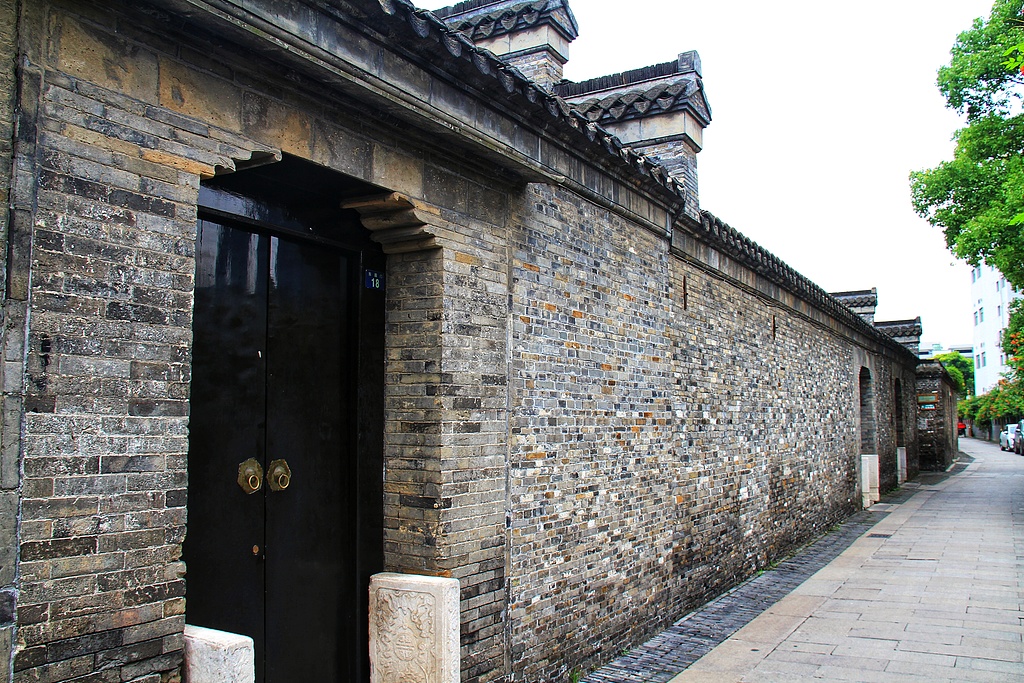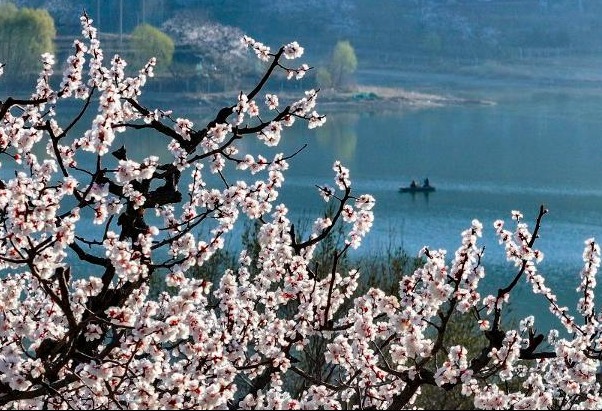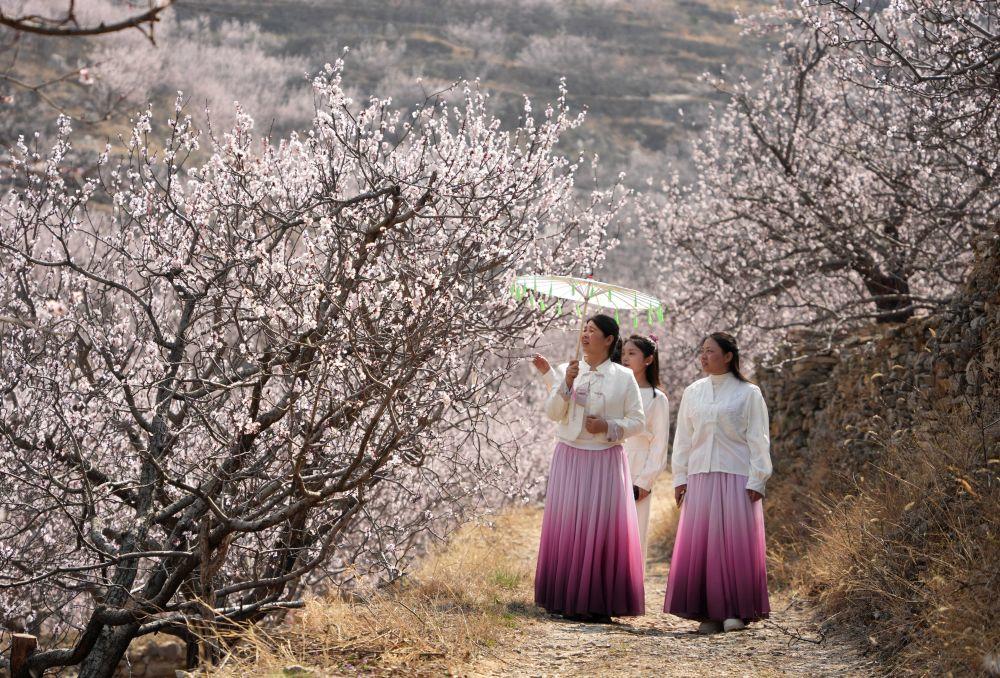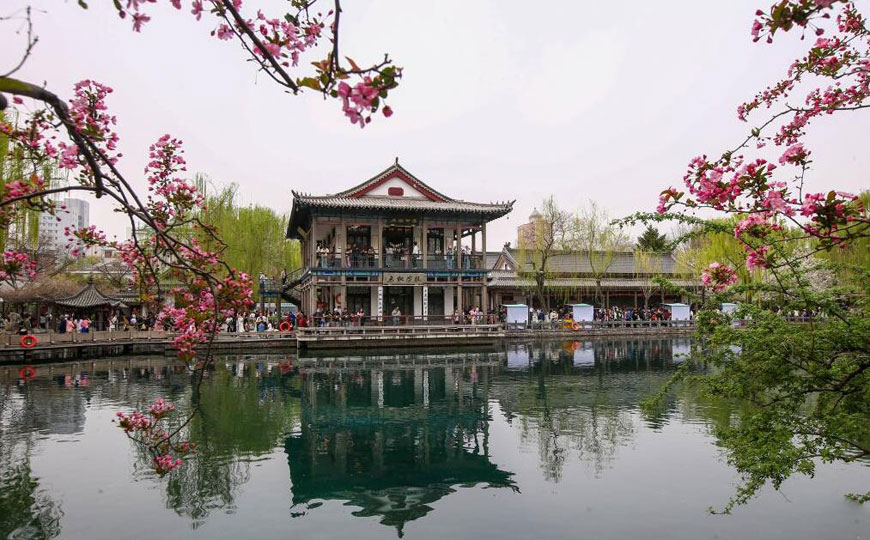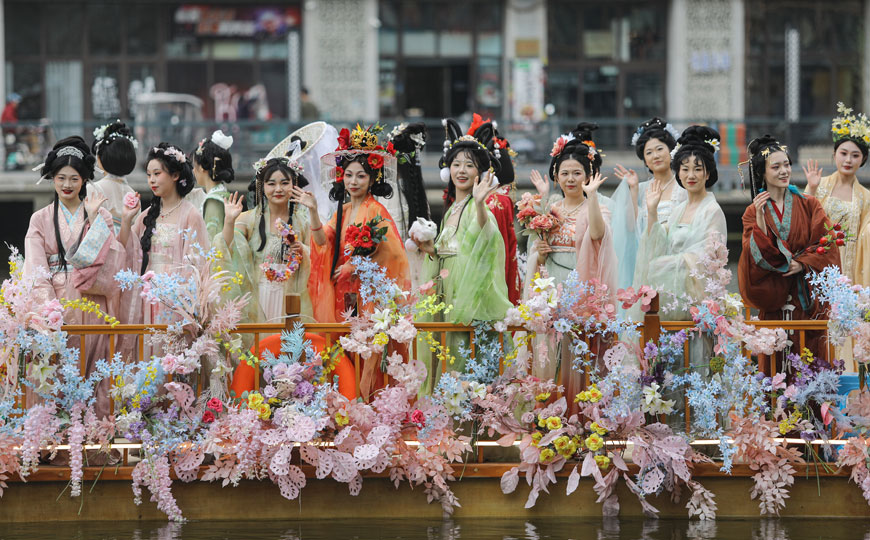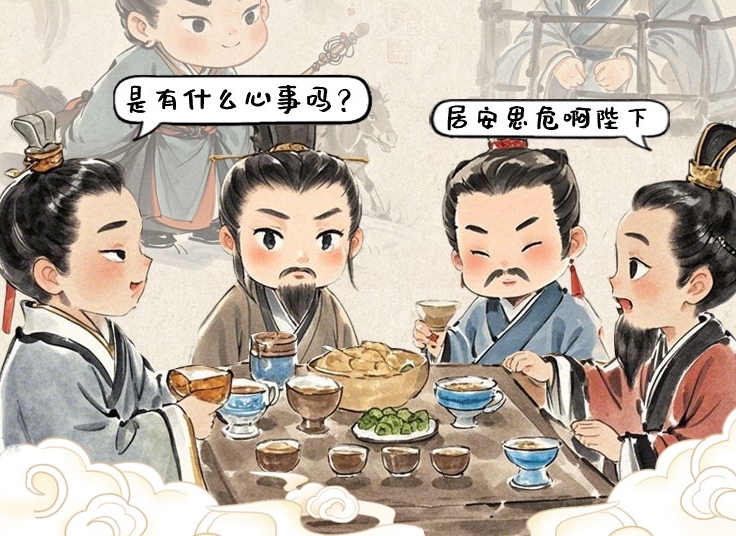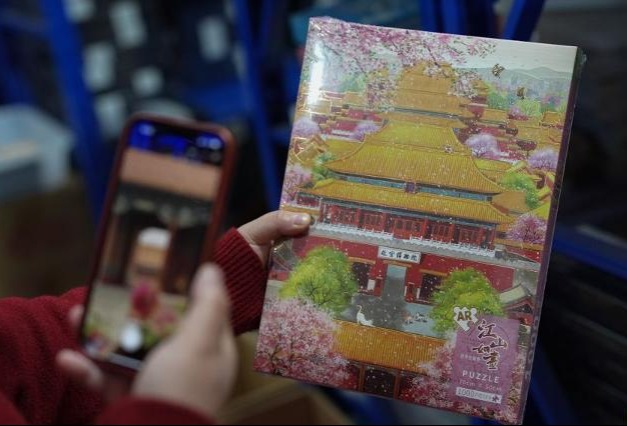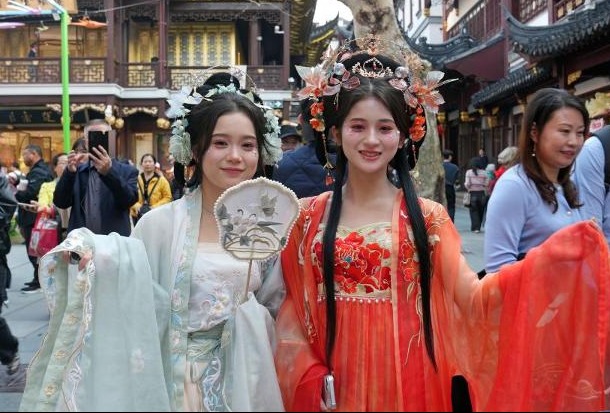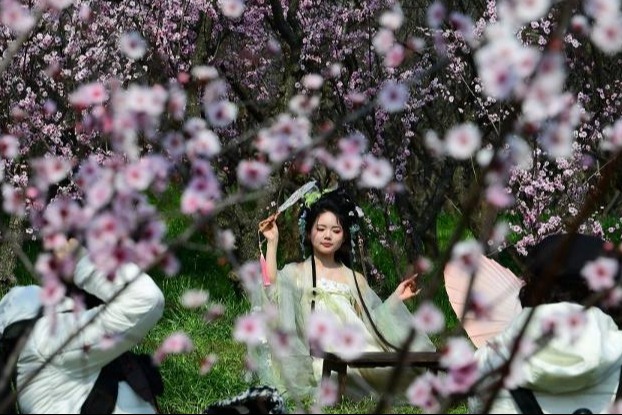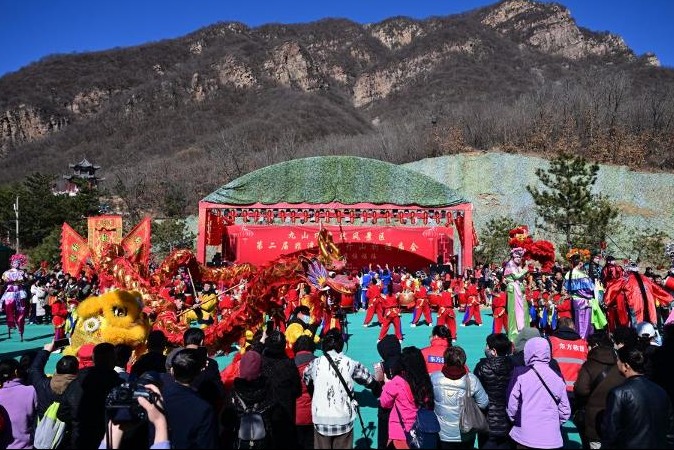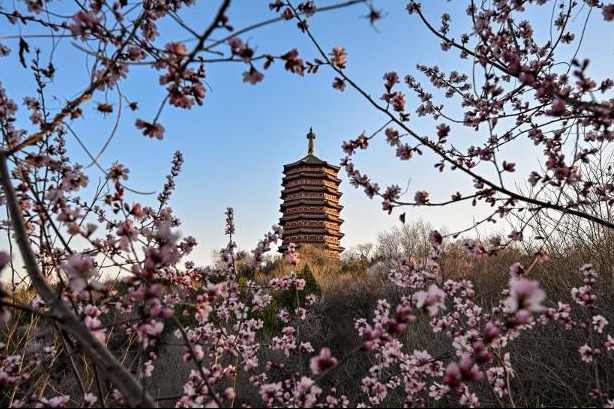海报新闻
诗人们沿着弯弯曲曲的小溪依次而坐,一盏酒杯漂流到谁跟前,谁就饮酒赋诗,这就是古时浪漫的“曲水流觞”雅事。公元353年,“书圣”王羲之在绍兴兰渚山下以文会友,写出“天下第一行书”《兰亭集序》。
Poets would sit along the meandering stream, and as a cup of wine drifted to them, they would drink and compose poetry—this is the ancient and romantic activity known as "Flow Winding and Wine glasses Drifting". In 353 AD, "Calligrapher Saint" Wang Xizhi gathered with friends at Lanzhu Mountain in Shaoxing, creating the "Preface to the Poems Composedat the Orchid Pavilion", acclaimed as the "best running script work in the world".
情随事迁:身世坎坷多舛
Moods Shift with the Circumstances: A Life of Trials and Tribulations
王羲之,东晋时期杰出的书法家,字逸少。他的出生地是琅琊(今山东临沂),后因家族变迁而南下至会稽山阴(今浙江绍兴)。王氏家族在两晋时期声名显赫,但王羲之的成长之路却充满了波折。他的父亲参与北伐匈奴后杳无音信,留下母子二人相依为命。依靠着家族的支持,王羲之得以在动荡不安的时代中成长起来。在他移居江南后的第46个年头,王羲之创作了《兰亭集序》,这篇作品不仅展现了其卓越的艺术才华,也表达了他对人生无常及对过往岁月深刻的情感。文中“情随事迁,感慨系之矣”一句,王羲之借曲水流觞这件事,感叹生命无常。
Wang Xizhi, an outstanding calligrapher of the Eastern Jin Dynasty, was styled Yishao. He was born in Langya (present-day Linyi, Shandong) and later moved south to Kuaiji Shanyin (present-day Shaoxing, Zhejiang) due to family changes. The Wang family was prominent during the Jin Dynasty, yet Wang Xizhi's path to adulthood was fraught with hardships. His father disappeared after participating in a northern expedition against the Xiongnu, leaving Wang Xizhi and his mother to rely on each other for survival.With the support of his family, Wang Xizhi grew up in an era of turmoil and instability.In the 46th year after he moved to the south of the Yangtze River, Wang Xizhi created the "Preface to the Poems Composed at the Orchid Pavilion" .This work not only showcases his exceptional artistic talent but also conveys his profound emotions regarding the impermanence of life and the passage of time. In the text, with the phrase "Moods shift with the circumstances, touched and filled with constant lamentation" and the event of the“Flow Winding and WineglassesDrifting”, Wang Xizhiexpressedhis deep sentiments about the changes in life and the world.
入木三分:极尽文采风流
Enter Three-tenths of an Inch into the Timber: A Display of Utmost Literary Grace and Flair
王羲之之所以能够成为“书圣”,与他的辛勤刻苦是分不开的。据传,在他家附近有一个水池,每次练完字后都会在此清洗毛笔,长此以往,清澈见底的水面竟被染成了黑色,因此得名“洗砚池”。更令人称奇的是关于“入木三分”的传说。据唐代张怀瓘所著《书断》记载,在一次祭祀大典之际,王羲之奉命将祝词书写于木板之上供工匠雕刻使用。工匠们惊讶地发现,那些文字竟然已经深深嵌入木头之中达三分之深,足见其笔力之刚劲。王羲之不拘泥于学习古人,他博采众长,将秦汉篆隶的笔法融入草体,形成独特的风格,推陈出新。王羲之的书法温润自然、飘逸典雅,他尤擅长楷书和行书,被世人尊为“书圣”。
Wang Xizhi's dedication to calligraphy is inseparable from his hard work and diligence. It is said that there was a pool near his home, where he would wash his brush after practicing calligraphy. Over time, the once clear waters were dyed black, hence the name "Washing Ink stone Pool" . What's more astonishing is the legend of "Enter Three-tenths of an Inch into the Timber". According to Zhang Huaiguan's "Shu Duan" from the Tang Dynasty, on the occasion of a sacrificial ceremony, Wang Xizhi was ordered to write the prayer on a wooden board for the craftsmen to carve. The craftsmen were amazed to find that the characters had penetrated deeply into the wood to a depth of three-tenths of an inch, which shows the strength of his brushwork. Wang Xizhi was not confined to learning from the ancients; he drew on the strengths of many, integrating the calligraphic techniques of the seal script of the Qin and Han dynasties into cursive script, creating a unique style and innovating. Wang Xizhi's calligraphy is gentle and natural, elegant and refined; he excelled particularly in regular script and running script, and was revered by the world as the "Sage of Calligraphy" .
坦腹东床:展现魏晋风骨
Be a Worthy Son-in-law of Somebody: A Reflection of the the Spirit of Wei and Jin Dynasties' Character
王羲之不仅以其书法成就闻名,更以独特的人格魅力体现了魏晋时期的风度。《世说新语》中夸赞王羲之“飘如游云,矫若惊龙”,正是因为这样的仪态和品节,王羲之才能在父亲早亡、家道中落的情况下受到高门大族的普遍称赞。相传,东晋一重臣欲为女择婿,考察了琅琊王氏的子弟们。在众多精心打扮、正襟危坐的青年中,唯有王羲之坦然袒腹倚卧于东厢房内,边摇扇子边吃胡饼,神情自若。这种不拘小节、率真自然的态度深深打动了他,他最终选择了王羲之作其女婿。这个故事也成了魏晋名士豁达随性、超凡脱俗风度的集中体现。
Wang Xizhi is not only renowned for his calligraphic achievements but also exemplified the demeanor of the Wei and Jin period through his unique personal charm. As praised in "A New Account of the Tales of the World" , he was described "as graceful as wandering clouds, as vigorous as a startled dragon". It was because of such demeanor and integrity that Wang Xizhi was universally praised by the noble families despite the early death of his father and the decline of his family's fortunes. According to legend, when a dignitary of Eastern Jin sought a husband for his daughter and examined the young men of the Langya Wang clan, among the many youths who dressed up and sat upright with great care, only Wang Xizhi lay bare-bellied and reclining in the eastern chamber, leisurely eating the Hu-style pancakes while fanning himself, with a composed expression. This unrestrained and natural attitude deeply impressed him, who ultimately chose Wang Xizhi as his son-in-law. This story has become a concentrated expression of the open-minded and transcendent demeanor of the famous scholars of the Wei and Jin dynasties.
王羲之已故去,但曲水流觞这件事“一日千载”,《兰亭集序》与其他墨宝共同构成了他留给后人的宝贵文化遗产,激励着一代又一代的人们探索书法之美。
Although Wang Xizhi had passed away, the event of floating wine cups along the winding watercourse has endured through the ages as if a single day had stretched into a thousand years. The "Preface to the Poems Composed at the Orchid Pavilion" and his other calligraphic treasures together form the precious cultural heritage he left for posterity, inspiring generation after generation to explore the beauty of calligraphy.
(部分素材来源:大众日报 齐鲁壹点)
无限工作室出品
视频:周溪琳
文案、配音:武玮佳
责编:胡玥姣
审核:马震
责编:马震

缅甸强震已造成5名中国公民遇难
央视新闻客户端
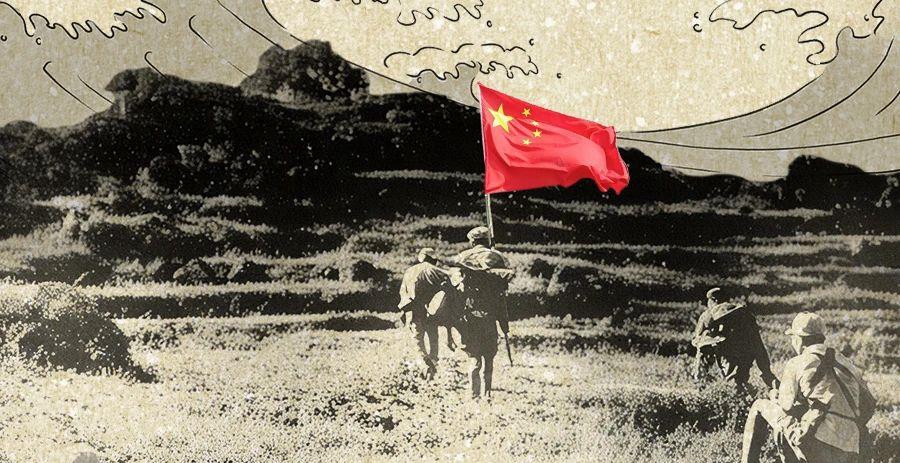
历史早已写下答案!为了这个省 他们用生命铺路
央视军事

英烈纵无名 山河永不忘
大众新闻·大众日报

赏花踏青觅春 山师附小2.4班师生赴百花公园开展春游研学活动
海报新闻

特朗普政府因对中国进口产品征收关税被起诉
央视新闻客户端

特朗普:只要马斯克愿意 其可无限期留任“政府效率部”
央视新闻客户端

坚决反对!中国医药保健品进出口商会就美征收所谓“对等关税”一事发表声明
央视新闻客户端

“滴滴崩了”冲上热搜!网友称被“无缘无故扣钱”,客服回应
潇湘晨报

联合国贸发会议警告全球贸易紧张局势升级
央视新闻

徒步百里祭英烈,这堂“思政课”已坚持30年
人民日报














